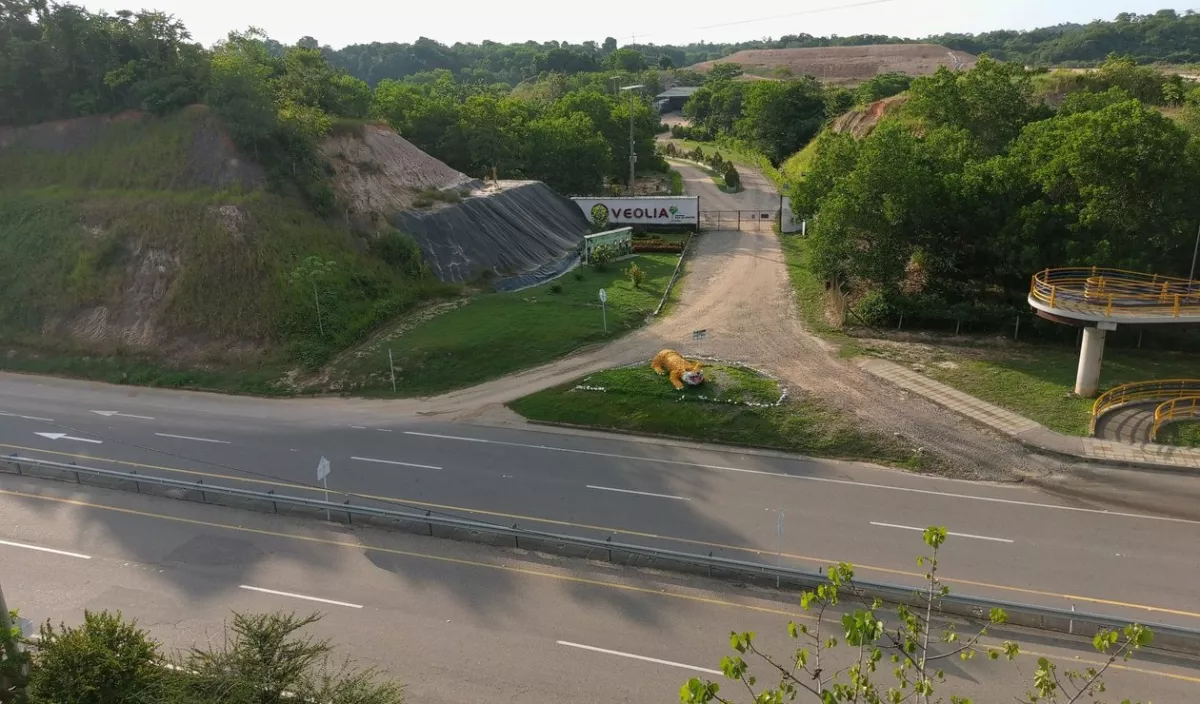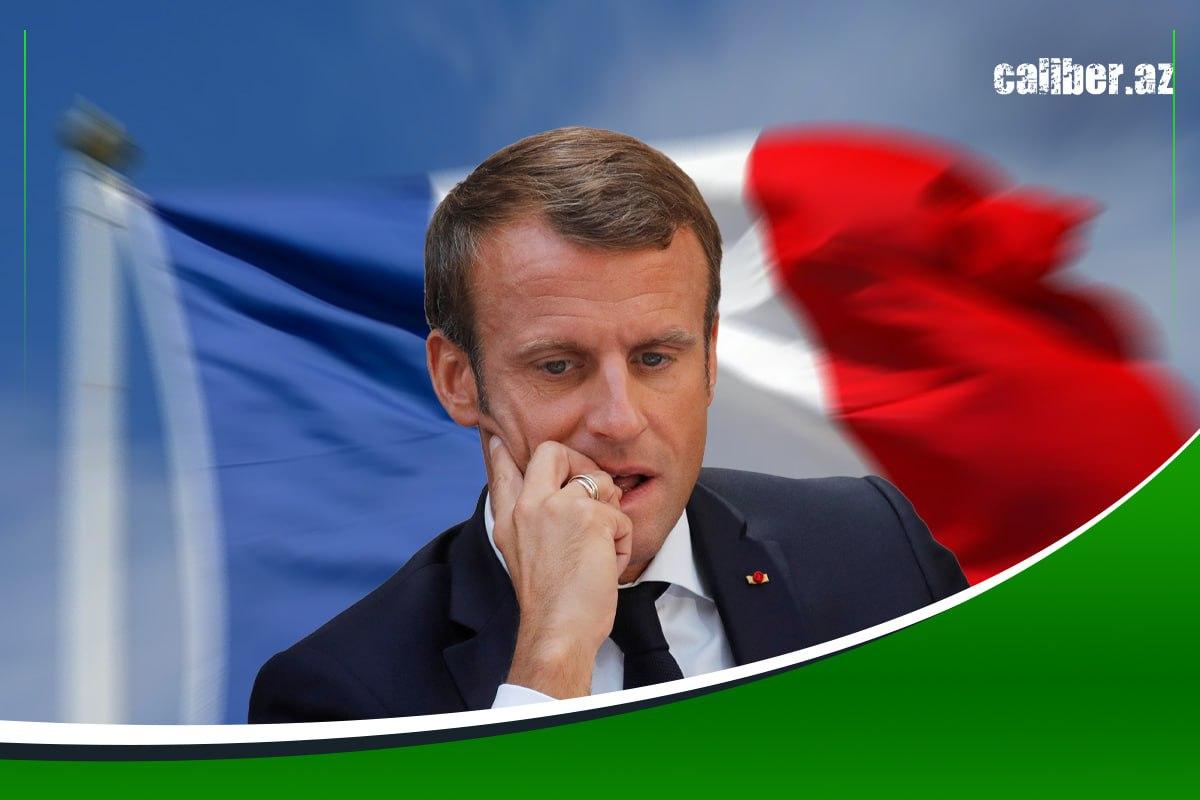Environmental colonialism: Paris and its toxic "daughters" France’s toxic legacy from Colombia to Armenia
Recently, the Armenian NGO Green Armenia shared a link on its Facebook page to a widely circulated article from late March about accusations against the French company Veolia in Colombia. The accusations involve "pumping toxins from a large landfill into protected wetlands," which poses a direct threat to local residents, as these wetlands "supply drinking water to 200,000 people." Some locals have already reported various illnesses in children, which they believe are related to the landfill.
Those who come across this information are likely to be puzzled as to why the NGO Green Armenia is referring to Colombia. But this confusion will persist only until they reach the final lines of the post. In these lines, it is clearly stated that the Armenian government should take note of the information, as the country is experiencing an annual "increase in complaints about the quality of water supply and services provided" by Veolia Water / Veolia Armenia. Now, it becomes clear, doesn't it? Once again, the hand (but is it really just the hand?) of France is at work in Armenia, and in quite a scandalous fashion, so to speak. But let's take it step by step.
Indeed, by following the link shared by the Armenian NGO, one can easily access an article titled: “Poisoned Ground: Secretly filmed footage shows Veolia pumping toxic pollutants into protected Colombian wetlands.”
The article goes on to detail how the French multinational Veolia is putting people’s health at risk, including causing “birth defects,” through the discharge of “untreated liquid pollutants, known as leachate.”
An analysis of sediment samples revealed a “high concentrations of heavy metals – including mercury 25 times over safe limits.” This is unequivocally contributing to “serious health complications, including impacts on pregnant woman and infant brain development.”

As the article reveals, despite repeated complaints from local residents, Veolia representatives deny the accuracy of the information. However, expert analysis has confirmed what is described as “shameless malpractice” that has persisted since the French company acquired the landfill in Colombia in 2019.
The article also exposes the false assurances made by Veolia officials regarding modernisation of the treatment process, noting that no improvements have taken place during this entire period. In one piece of secretly recorded footage, it is clearly visible that the “the site’s treatment facility is clearly seen to be non-operational while the dumping is taking place,” resulting in leachate pollution across the entire hydrographic system, which in turn contributes to various health issues.
Beyond the threat to public health, the pollution is also said to be harming the entire surrounding ecosystem.
Let’s agree that the information presented above hardly needs additional commentary. What does merit attention, however, is that the outrageous conduct of the French company in Colombia becomes nothing short of a mockery for anyone who has carefully read Veolia’s Code of Corporate Ethics.
This document claims the company is committed to upholding “national and international laws and the recommendations of global organizations, in particular with respect to observing fundamental principles, taking account of cultural diversities and protecting the environment.”
A mockery, isn’t it? Then again, why be surprised—Veolia’s behaviour in Colombia is entirely in line with France’s broader attitude toward many countries it still treats as colonies. In such a context, the French motto “Liberty, Equality, Fraternity” exists merely as a slogan—nothing more.
The irony, however, runs even deeper. If Paris violates all imaginable and unimaginable rules and norms on such a global scale, then what can be said about its approach to environmental protection?
No, not “environmental protection” in the context of Emmanuel Macron lobbying exclusively for French interests, wrapped in lofty rhetoric about safeguarding nature and public health. Let’s recall the basics: in 2018, Macron promised to shut down all coal-fired power plants in France. In 2023, he introduced his so-called “ecological planning” measures, which included the gradual decarbonisation of France and a 55% reduction in greenhouse gas emissions by 2030. Ahead of the 2024 European Parliament elections, he again emphasised the need for European nations to “transition to an environmentally sustainable development model.” All for the French, right?
But somewhere between these grand pronouncements, Macron also declared that all states must completely cease financing the construction of environmentally harmful projects in developing countries.
So, in light of the environmental lawlessness described above—Veolia’s toxic operations in Colombia—how should one interpret Macron’s call? As fiction? As a performance for the cameras? As mere posturing?
It is therefore hardly surprising that during COP29—a summit that Emmanuel Macron and the French Minister for the Ecological Transition, Energy and Climate chose to ignore—an event titled “End Colonialism for the Sake of Peace and a Green Planet!” was held. Organised by the Baku Initiative Group (BIG), the action brought together activists from island nations still under French colonial rule, who used the platform to send a clear message to France: a call to put an end to its colonial policy.

And now, a few words about “Franco-Armenia.” Since 2017, Armenia’s nationwide drinking water supply system has been operated—under a 15-year contract—by Veolia Djur, a subsidiary of none other than French giant Veolia Environnement.
Just a year later, in 2018, Veolia Djur reacted angrily to a statement issued by Armenian police, which alleged that several of the company’s employees were involved in large-scale embezzlement through falsified documentation, forged completion reports, and other forms of misconduct.
In 2023, Armenia’s Water Committee declared that “after eight years of managing the country’s water supply, Veolia Djur has still failed to meet its obligation to ensure transparency and accountability to the population.”
And in 2024, Armenia’s Ombudsman demanded explanations from the company following mounting complaints about “the improper provision of services.”
And here, everything becomes clear, doesn’t it? Which brings us back to Colombian soil, where Veolia is, quite literally, poisoning the local population.
Undoubtedly, if official Paris were truly fair and objective, it would at the very least issue a statement on the matter. Yes, Veolia is a private company—but is it not still a French company? So is the Élysée Palace truly indifferent to the fact that the flagrant injustice that has become Veolia’s calling card reflects, by extension, on France as a whole?
Then again, does Macron even care about such details? A president who, for years now, has seemed lost and utterly devoid of even the most basic traits of leadership.








